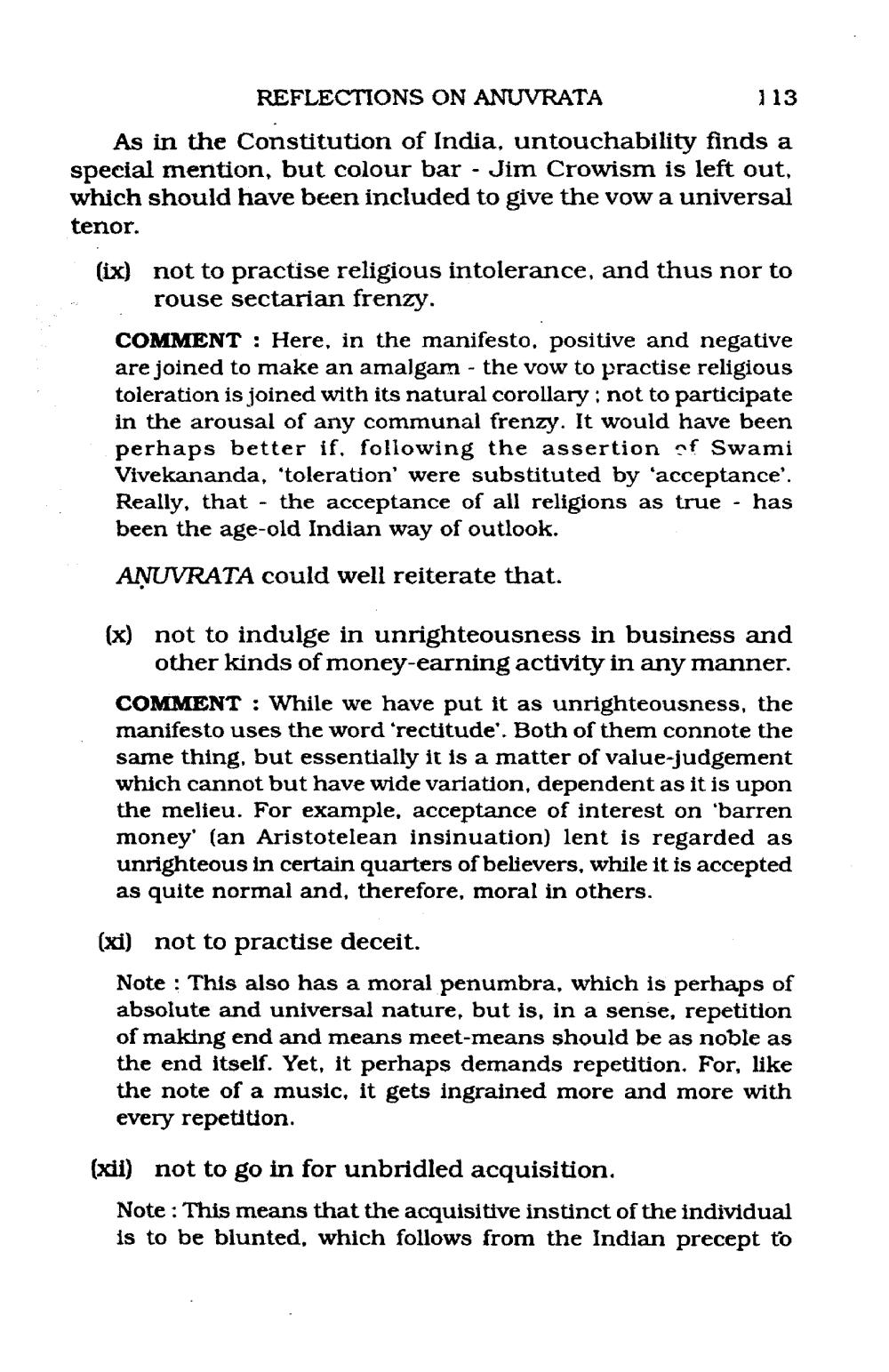________________
REFLECTIONS ON ANUVRATA
113 As in the Constitution of India, untouchability finds a special mention, but colour bar - Jim Crowism is left out, which should have been included to give the vow a universal tenor.
(ix) not to practise religious intolerance, and thus nor to
rouse sectarian frenzy. COMMENT : Here, in the manifesto, positive and negative are joined to make an amalgam - the vow to practise religious toleration is joined with its natural corollary : not to participate in the arousal of any communal frenzy. It would have been perhaps better if, following the assertion of Swami Vivekananda, "toleration' were substituted by 'acceptance' Really, that - the acceptance of all religions as true - has been the age-old Indian way of outlook.
ANUVRATA could well reiterate that.
(x) not to indulge in unrighteousness in business and
other kinds of money-earning activity in any manner. COMMENT : While we have put it as unrighteousness, the manifesto uses the word 'rectitude'. Both of them connote the same thing, but essentially it is a matter of value-judgement which cannot but have wide variation, dependent as it is upon the melieu. For example, acceptance of interest on barren money' (an Aristotelean insinuation) lent is regarded as unrighteous in certain quarters of believers, while it is accepted as quite normal and, therefore, moral in others.
(xi) not to practise deceit.
Note: This also has a moral penumbra, which is perhaps of absolute and universal nature, but is, in a sense, repetition of making end and means meet-means should be as noble as the end itself. Yet, it perhaps demands repetition. For, like the note of a music, it gets ingrained more and more with every repetition.
(xii) not to go in for unbridled acquisition.
Note: This means that the acquisitive instinct of the individual is to be blunted, which follows from the Indian precept to




